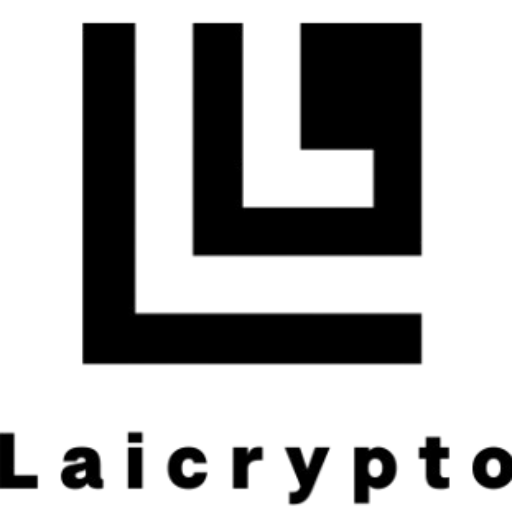Disclosure: The views and opinions expressed here belong solely to the author and do not represent the views and opinions of crypto.news’ editorial.
If you’d told me last year that the United States Securities and Exchange Commission commissioners would be defending self-custody of assets and talking about innovation sandboxes for DeFi, I would have raised an eyebrow. But here we are.
At the SEC’s recent Crypto Task Force roundtable, something unexpected happened. Regulators showed a level of openness that would have sounded impossible even a year ago. They talked about the importance of self-custody, acknowledged that publishing smart contract code is (almost) a form of protected speech, and even floated the idea of giving builders conditional exemptions or innovation spaces to experiment. Actual breathing room.
Now, I get it. In an industry so used to regulatory whiplash, this might not feel like headline news. But this shift has global implications. The U.S., as we know, plays an outsized role in how financial markets evolve. A shift like this in the U.S. doesn’t stay in the U.S. for long. It shapes global attitudes, moves institutional comfort zones, and opens the door for programmable finance to step into the mainstream.
If you’re a builder, this is a moment to lean in and pay attention. And if you’re a policymaker outside the U.S., this is your cue: what’s changing here matters far beyond American borders.
The world is moving toward programmable finance
Most existing crypto regulation is still rooted in a playbook designed for a very different era—a world where finance relied on multiple layers of intermediaries and siloed infrastructure. But the systems we’re designing today look nothing like that. Smart contracts are quietly replacing broker-dealers. Wallets can act as both identity layers and private banks. Tokenized assets can carry their own compliance logic. It’s not just incremental innovation—it’s a new financial architecture.
And that’s why it’s encouraging to see regulators starting to say, “Maybe we need to rethink our assumptions.” Because they’re finally speaking the language of programmable finance. And that changes the energy from resistance to potential collaboration.
There’s real data behind the shift. SEC enforcement actions on crypto dropped by 30% in 2024 compared to the previous year. In early 2025, the agency dropped its case against Coinbase and paused others. It repealed SAB 121, a burdensome rule that had sidelined crypto custody by banks. And it launched a dedicated Crypto Task Force with a stated goal of building a more “workable framework.”
For anyone who has built through the fog of regulatory uncertainty, this is an inflection point. Not because everything is fixed, but because for the first time in years, the signal is: let’s figure this out together.
The global opportunity: Regulation as infrastructure
If you zoom out, the challenge facing regulators isn’t that different from what developers face in a multi-chain world—fragmentation, inefficiency, and poor interoperability.
DeFi doesn’t care where borders are drawn. Capital flows, token standards, identity primitives—these are all global by design. It can’t thrive under over 190 different regulatory silos. When every jurisdiction defines tokens differently or mandates conflicting custody rules, we don’t just get compliance headaches; we break the interoperability and composability that make decentralized systems so powerful in the first place.
So the real risk here is regulatory fragmentation. Solving it requires thinking about regulation not just as a gatekeeper, but as infrastructure. Interoperability can’t stop at the blockchain layer. It has to extend into policy, legal architecture, and how we think about financial systems overall.
That doesn’t mean every country needs to adopt identical laws. But it does mean agreeing on a few important principles. For example, self-custody should be recognized as a legitimate form of ownership. Programmable compliance can be just as trustworthy as traditional paper-based audits. And so on.
This is especially urgent as institutions begin to engage in real ways. The building blocks are already here. Franklin Templeton’s on-chain money market fund is managing over $762 million. JPMorgan is testing cross-chain treasury settlement flows. Ondo Finance is integrating with Mastercard to support 24/7 access to tokenized treasuries. BlackRock’s BUIDL fund, with almost $2.9 billion in assets, shows that institutional momentum is growing fast. But none of this scales if the regulatory fabric underneath stays fragmented.
The alternative to this collaborative approach is a costly race to the bottom—or worse, irrelevance. Jurisdictions clinging to outdated regulatory models risk stifling innovation, driving away capital, and ceding leadership to more forward-thinking nations.
Builders, the window is open
What is critically needed next isn’t rigid uniformity across jurisdictions, but effective coordination among regulatory bodies. In the same way the industry spent years building protocol-level interoperability, we now need regulatory composability too.
Across the ecosystem, we’re seeing the rise of compliance middleware—tools that let builders integrate checks without giving up decentralization. Zero-knowledge proofs are moving from whitepapers into real implementations. Liquidity is becoming more fluid across chains, with apps executing in one place but sourcing assets from many.
The rails are getting real. And now the regulatory narrative isn’t working against that—it’s facilitating this transformation.
Don’t wait for perfect clarity
Regulatory environments are never static. What matters is whether they are moving in the right direction. The U.S. is currently demonstrating leadership in this space, offering a blueprint that other nations can adapt. This approach fosters clarity without rigidity and promotes innovation without chaos.
If you’re a regulator in another country, this is an opportunity to learn from the U.S. shift. Move away from adversarial enforcement and lean into what programmable finance can enable. Move quickly: establish innovation spaces, and proactively engage with other regulators to harmonize core principles rather than waiting for fully formed, potentially divergent frameworks.
If you’re a builder, this is your chance to build with purpose. Engage early. Be transparent. Show how your system can meet the goals that regulation is supposed to serve. Rapidly prototype solutions that integrate compliance by design, and proactively seek dialogue with newly formed regulatory bodies and innovation sandboxes. This is the moment to demonstrate how programmable finance can elevate, not undermine, financial integrity and consumer protection.
If you’re an institution, look past the headlines. Rapidly prototype, build internal digital asset expertise, and partner with DeFi innovators to integrate programmable finance now, instead of waiting for off-the-shelf solutions. The infrastructure is already here. Products are shipping. The market is evolving fast.
Programmable finance won’t replace the system overnight. But it is building a parallel one that’s more open, more composable, and increasingly institutional-grade. Let’s not miss this moment to shape it.




